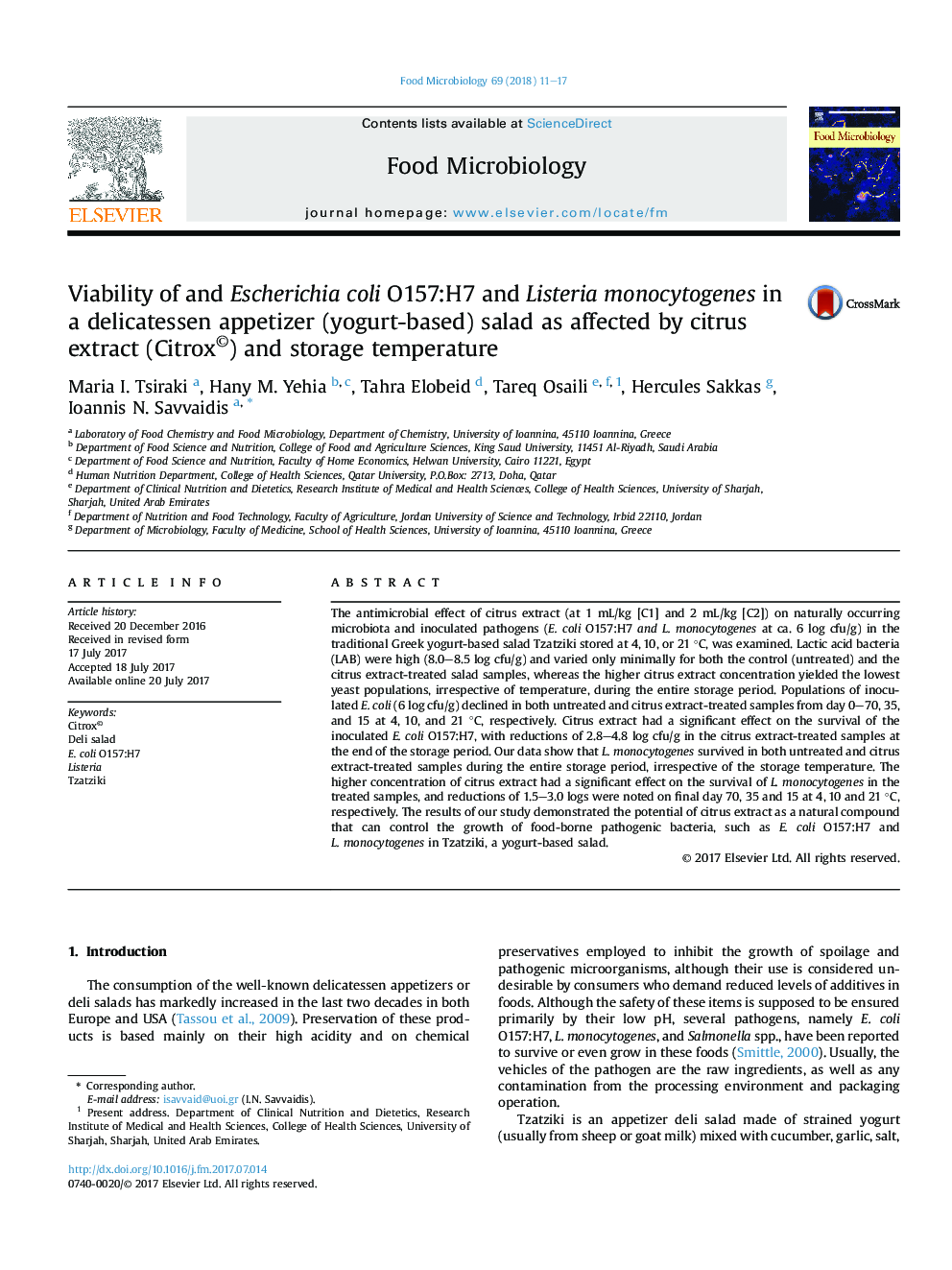| کد مقاله | کد نشریه | سال انتشار | مقاله انگلیسی | نسخه تمام متن |
|---|---|---|---|---|
| 5740070 | 1616232 | 2018 | 7 صفحه PDF | دانلود رایگان |

- We studied the effect of citrus extract on pathogens in a yogurt-based salad.
- Lactic Acid Bacteria (LAB) varied little in untreated and treated salad.
- Citrox® affected significantly yeast populations in the yogurt-based salad samples.
- Citrox® had a significant effect on the survival of the inoculated E. coli O157:H7.
- Listeria monocytogenes survived in all salad samples during the storage period.
The antimicrobial effect of citrus extract (at 1 mL/kg [C1] and 2 mL/kg [C2]) on naturally occurring microbiota and inoculated pathogens (E. coli O157:H7 and L. monocytogenes at ca. 6 log cfu/g) in the traditional Greek yogurt-based salad Tzatziki stored at 4, 10, or 21 °C, was examined. Lactic acid bacteria (LAB) were high (8.0-8.5 log cfu/g) and varied only minimally for both the control (untreated) and the citrus extract-treated salad samples, whereas the higher citrus extract concentration yielded the lowest yeast populations, irrespective of temperature, during the entire storage period. Populations of inoculated E. coli (6 log cfu/g) declined in both untreated and citrus extract-treated samples from day 0-70, 35, and 15 at 4, 10, and 21 °C, respectively. Citrus extract had a significant effect on the survival of the inoculated E. coli O157:H7, with reductions of 2.8-4.8 log cfu/g in the citrus extract-treated samples at the end of the storage period. Our data show that L. monocytogenes survived in both untreated and citrus extract-treated samples during the entire storage period, irrespective of the storage temperature. The higher concentration of citrus extract had a significant effect on the survival of L. monocytogenes in the treated samples, and reductions of 1.5-3.0 logs were noted on final day 70, 35 and 15 at 4, 10 and 21 °C, respectively. The results of our study demonstrated the potential of citrus extract as a natural compound that can control the growth of food-borne pathogenic bacteria, such as E. coli O157:H7 and L. monocytogenes in Tzatziki, a yogurt-based salad.
Journal: Food Microbiology - Volume 69, February 2018, Pages 11-17